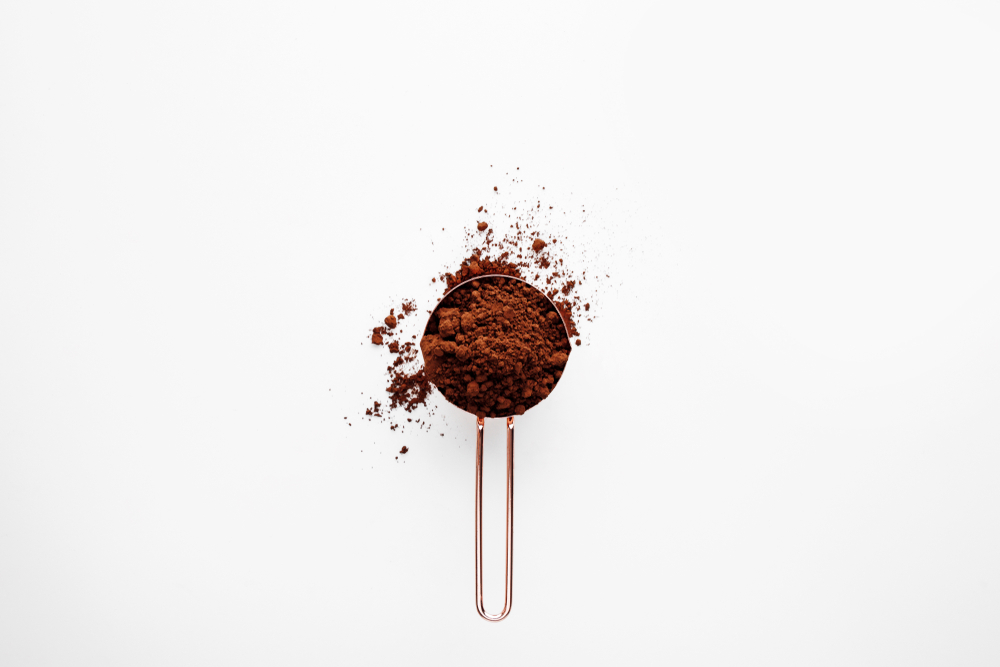
Nutrition For Lean Muscle Mass
When you want to build lean muscle without the addition of unwanted body fat one of the biggest challenges is to consume the correct amount of calories to support muscle growth (and also ensure you’re body has all the nutrients it needs) but also not to eat too much to cause unnecessary fat gain. Here we explore everything you need to know about building lean muscle through your nutrition, all without putting on unwanted body fat.
 Calories for Lean Muscle Mass
Calories for Lean Muscle Mass
When looking to increase muscle mass you have to create a calorie surplus (which is where you consume more calories than you burn) in order to produce an environment within your body that is capable of muscular hypertrophy. But what many people don’t know is that this calorie surplus only has to be around 500 calories and you don’t have to consume a colossal amount to increase muscle.
Another thing to remember when looking to put on lean muscle is that all the foods you do consume need to be nutrient dense and you shouldn’t be consuming any empty calories at all. This means no pizza, burgers, soft drinks and ice cream since although they are all calorific and will help you create a calorie surplus; they provide very little nutritional benefits and lack the vitamins and minerals that are needed for muscle growth. For instance ice cream and soft drinks aren’t exactly known for being a great source of vitamins and minerals and what’s worse is that a lot of them contain phosphates that have been shown to deplete the body’s iron stores. Iron is obviously hugely important to bodybuilders since it’s vital for the transportation of oxygen by haemoglobin and muscles using oxygen by myoglobin. Having less iron in the body means less oxygen can be delivered to the working muscles.
Talking more generally, junk food such as doughnuts or pastries lack various muscle-building micronutrients such as zinc, which serves as a cofactor in more than 100 enzyme processes within the body, the most important being to help build DNA, protein, insulin and testosterone production. Obviously insulin is needed by the body to shuttle key nutrients such as amino acids to the muscles and testosterone is a hugely important anabolic hormone and without sufficient zinc in the diet both are affected.
Whilst there are too many nutrients to name specifically, it’s important to note that high calorie diets that are aimed at bulking and not lean muscle can lead to nutrient deficiency or a new form of malnutrition as described by scientists Orit Kaidar-Person et al (2008) which will ultimately leave your muscles underfed and will stunt their growth. Therefore concerning nutrients, it’s much wiser to attempt what’s known as a ‘clean bulk’ and ensure you create a calorie surplus through more nutrient dense foods since this will ensure your body also receives the often overlooked micronutrients it needs for muscular hypertrophy.
Nutrition and Delivery of Nutrients
Another important issue to consider is your ‘insulin sensitivity’ and how this can be affected by your nutrition. Firstly insulin is a hormone responsible for shuttling nutrients to the muscles and insulin sensitivity relates to how much of the hormone insulin your body needs to shuttle these nutrients to muscles. Put simply ‘good insulin sensitivity’ means your body only needs a small amount to transport nutrients to the muscles whereas ‘bad insulin sensitivity’ means your body isn’t very good at shuttling nutrients to the muscles and requires a lot of insulin, plus even worse than that you’re also on track to diabetes.
Now whilst insulin sensitivity varies from person to person research shows that a diet high in junk food won’t help matters. Specifically this relates to fast food and its content of trans fatty acids (trans fats) which is an artificially made fat that’s used when making pastries, cookies, doughnuts and French fries. It’s responsible for that ‘melt in your mouth’ type feeling you get from a really nice doughnut or cookie and although it tastes amazing, researchers Mark. A Pereira et al (2005) state it negatively affects insulin sensitivity. This means although certain French fries taste amazing and they will help you create a calorie surplus, they will detrimentally affect insulin sensitivity and therefore how effectively nutrients are transported to the muscles.
This exact principle also applies with foods that are high in fructose such as certain pre-packaged cereals, junk food deserts, potato chips, soft drinks and shockingly certain foods that are advertised as healthy since researchers Heather Basciano et al (2005) found that diets contain a high amount of fructose again negatively affected insulin sensitivity. So again when looking to solely bulk up (and when you’re not concerned with body fat) fizzy drinks and doughnuts are ok to an extent, but if you’re looking to build lean muscle you have to pay attention to your insulin sensitivity and so avoid such foods.
Also very closely linked to insulin sensitivity is how your body stores and burns body fat. This is because whilst insulin helps to transport nutrients to the muscles, it’s also the most lipolytic (fat storing) hormone in the body, shuttling fatty acids and glucose to fat cells to be stored as body fat. For this reason no one wanting to increase lean muscle will want bad insulin sensitivity since this means their body will release more insulin which in turn reduces lipolysis (the burning of fat) and increases lipogensis (the storing of body fat) so again another reason to avoid junk food when wanting to increase lean muscle.
In conclusion when looking to ‘lean bulk’ it’s important to only create a calorie surplus of 500 calories, through nutrient dense foods and avoid junk foods that may detrimentally affect insulin sensitivity and also affect the delivery of nutrients around the body as well as the storing and burning of body fat.






No Comments yet!